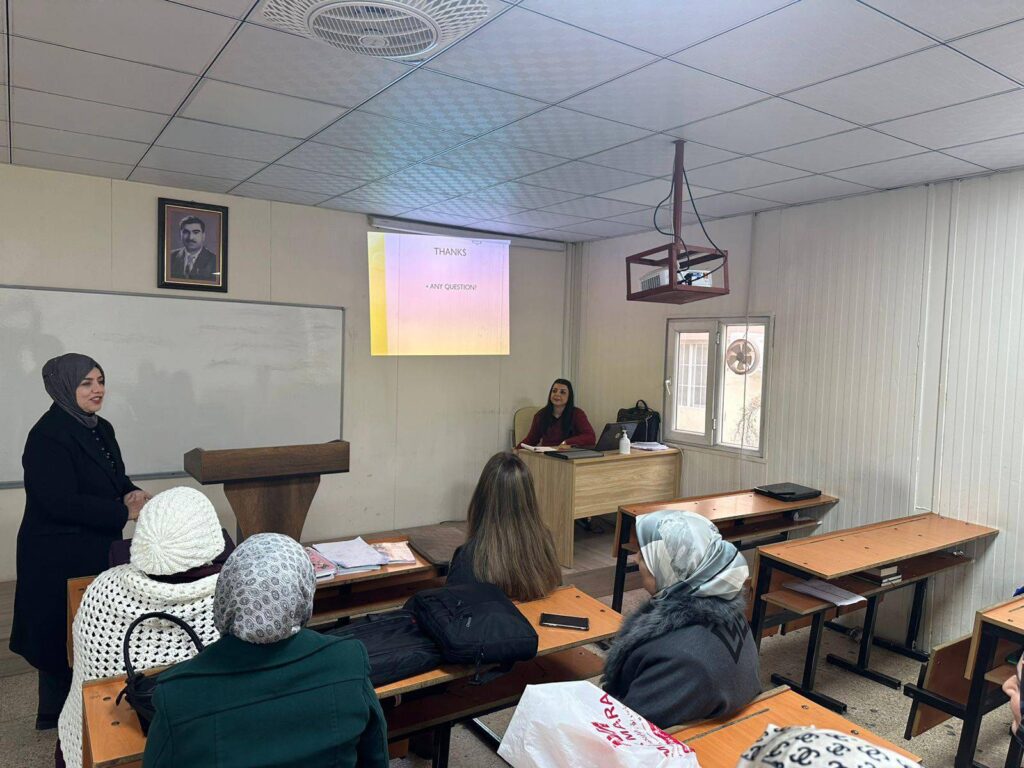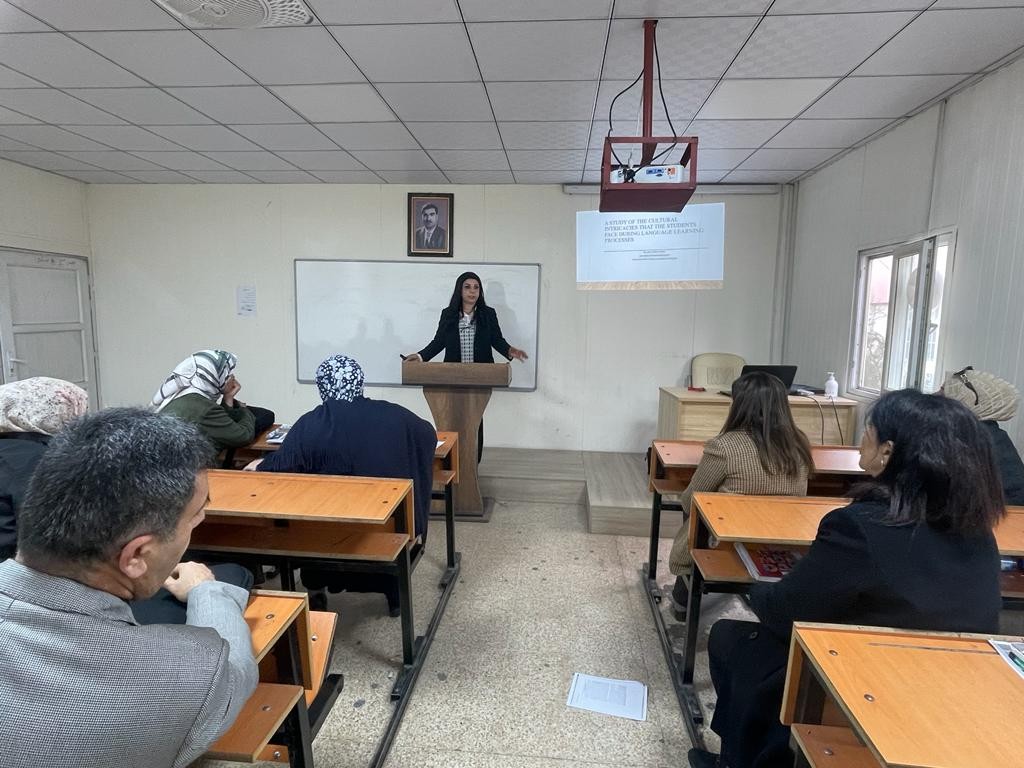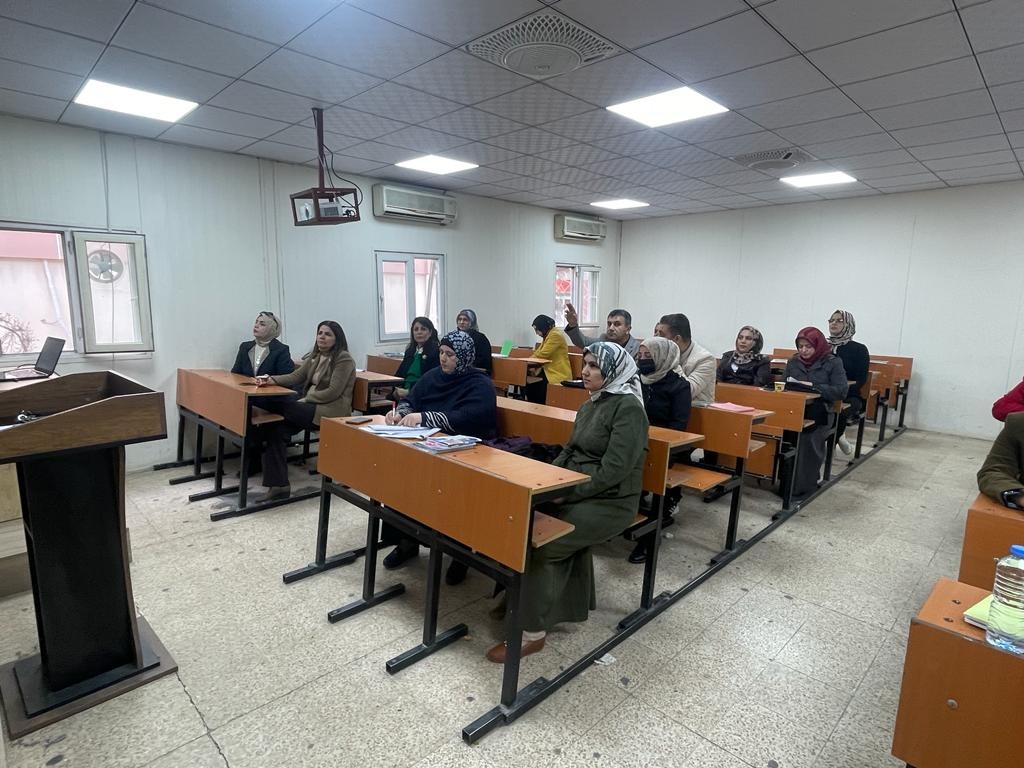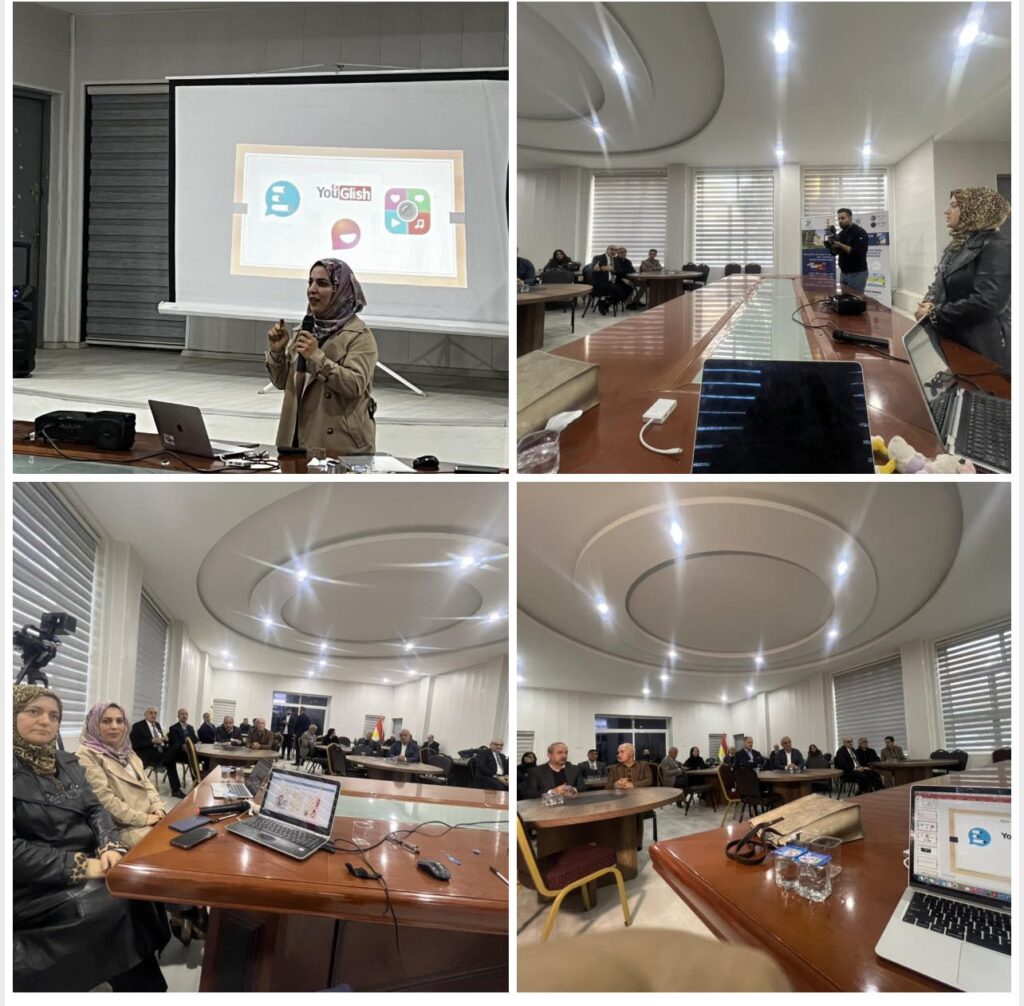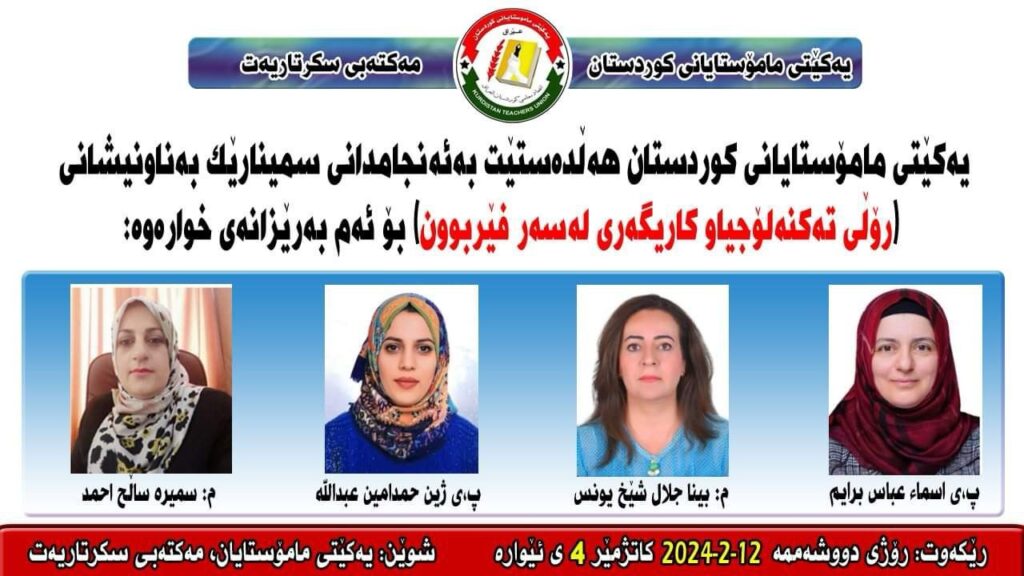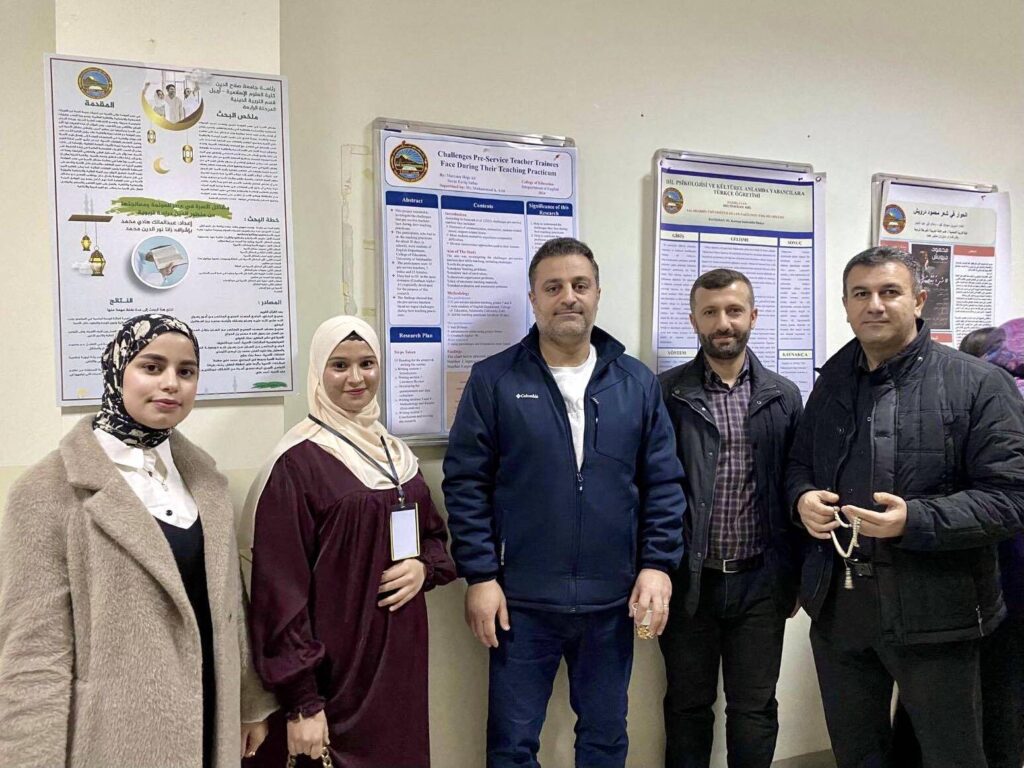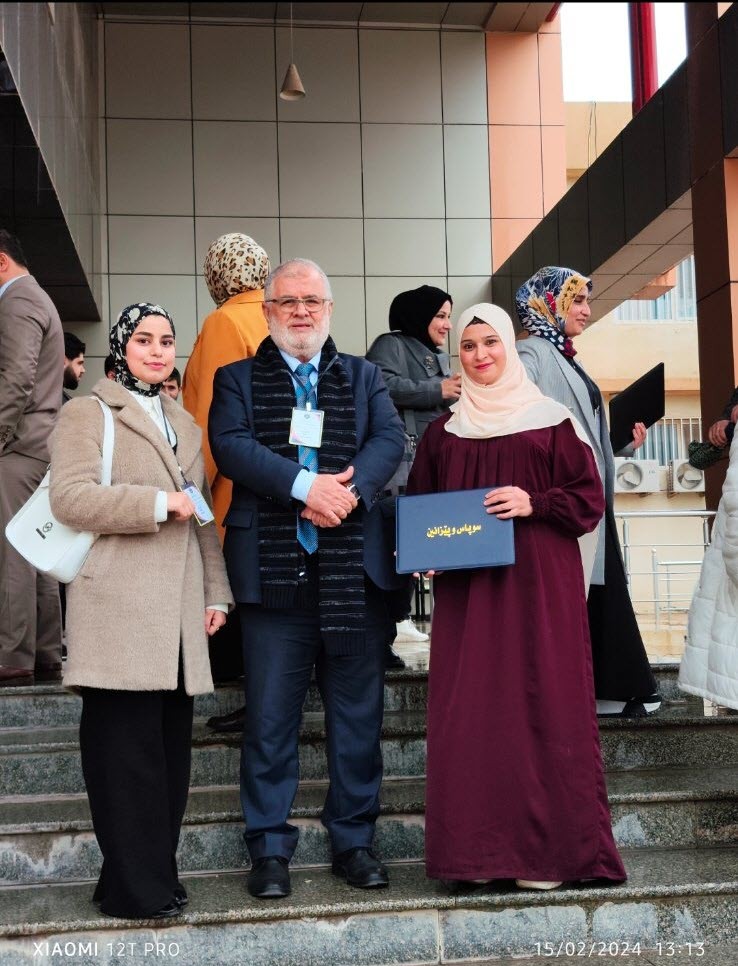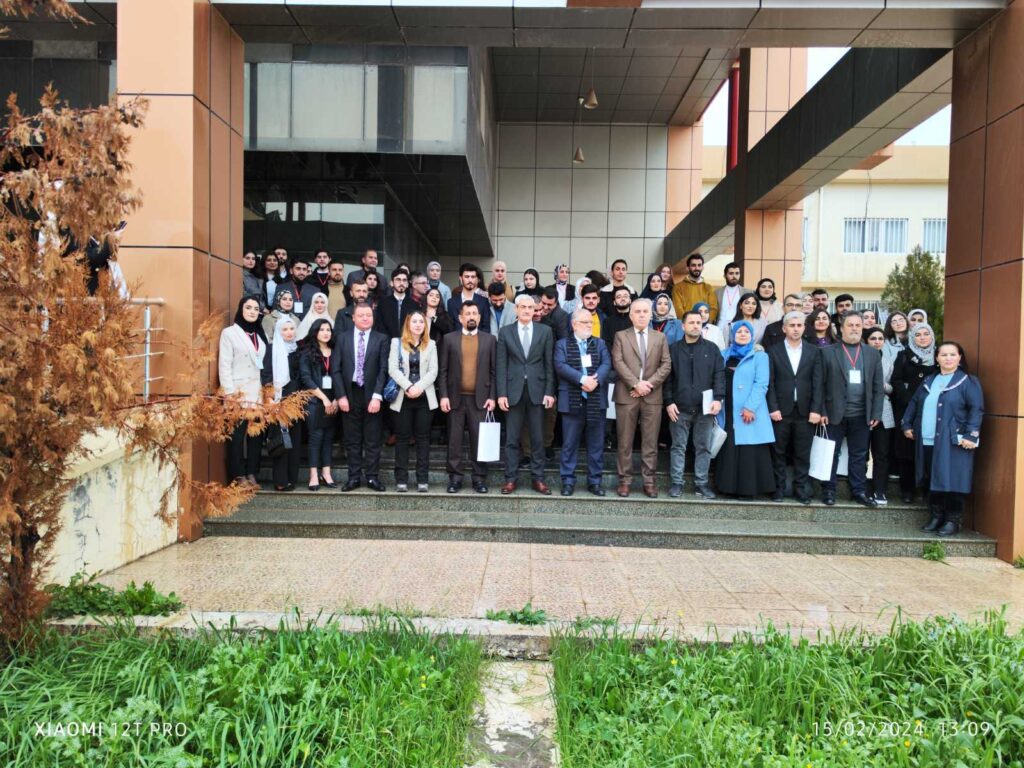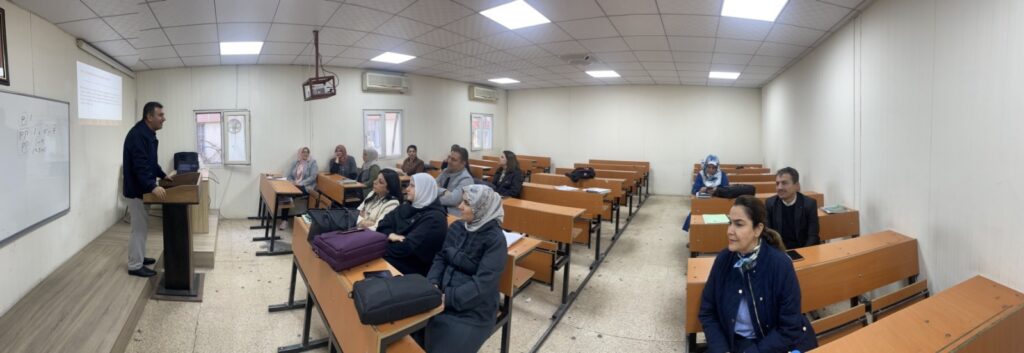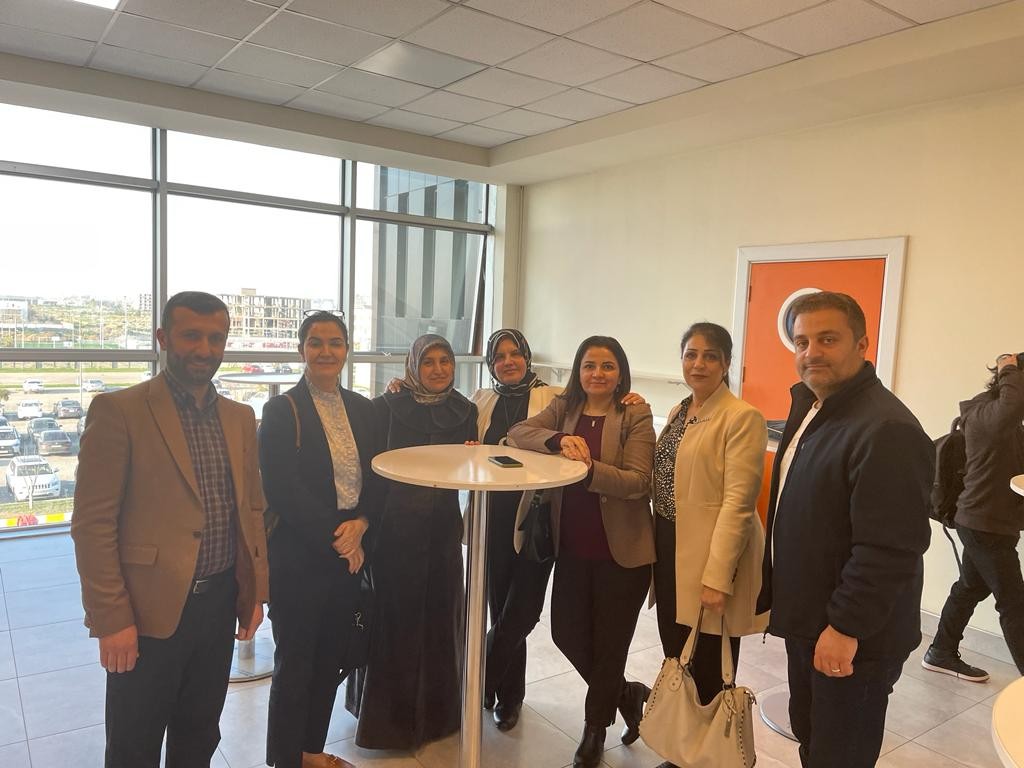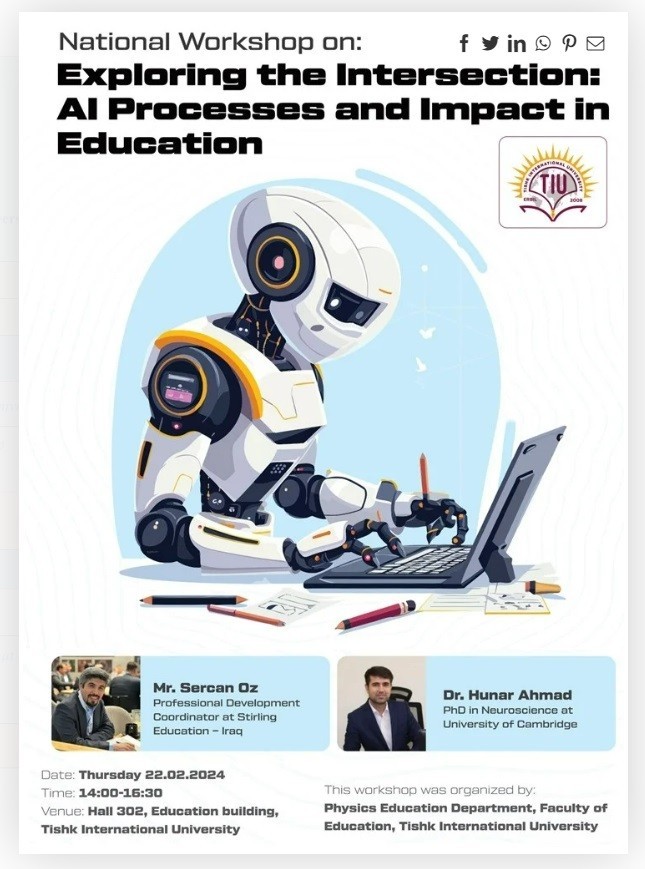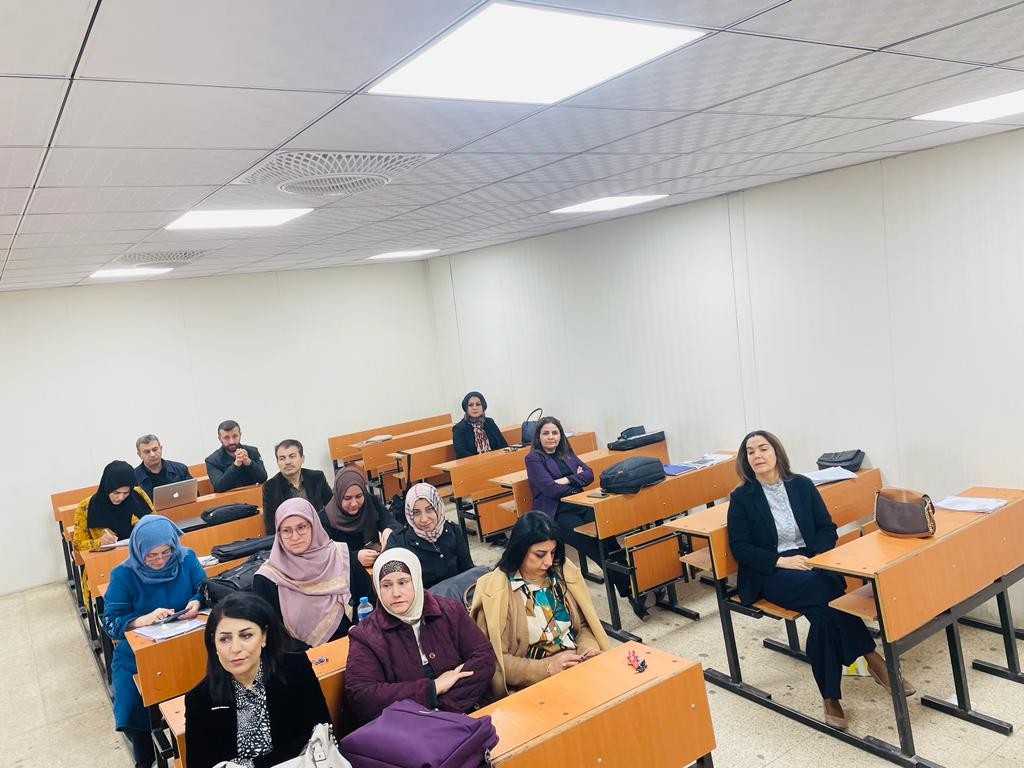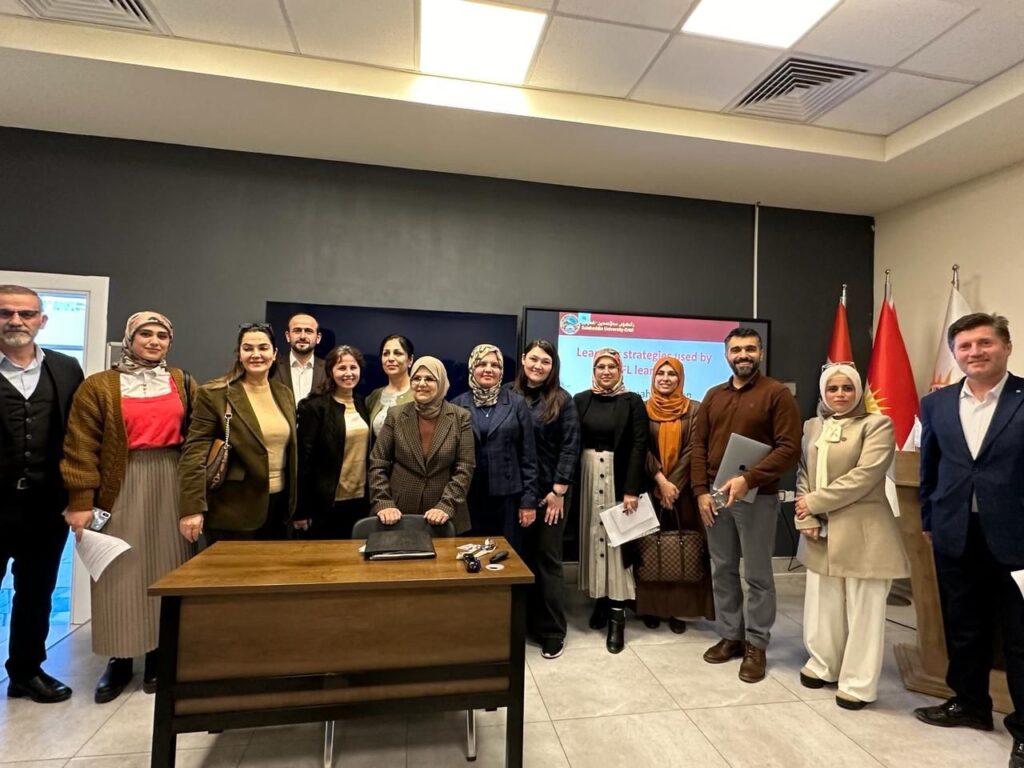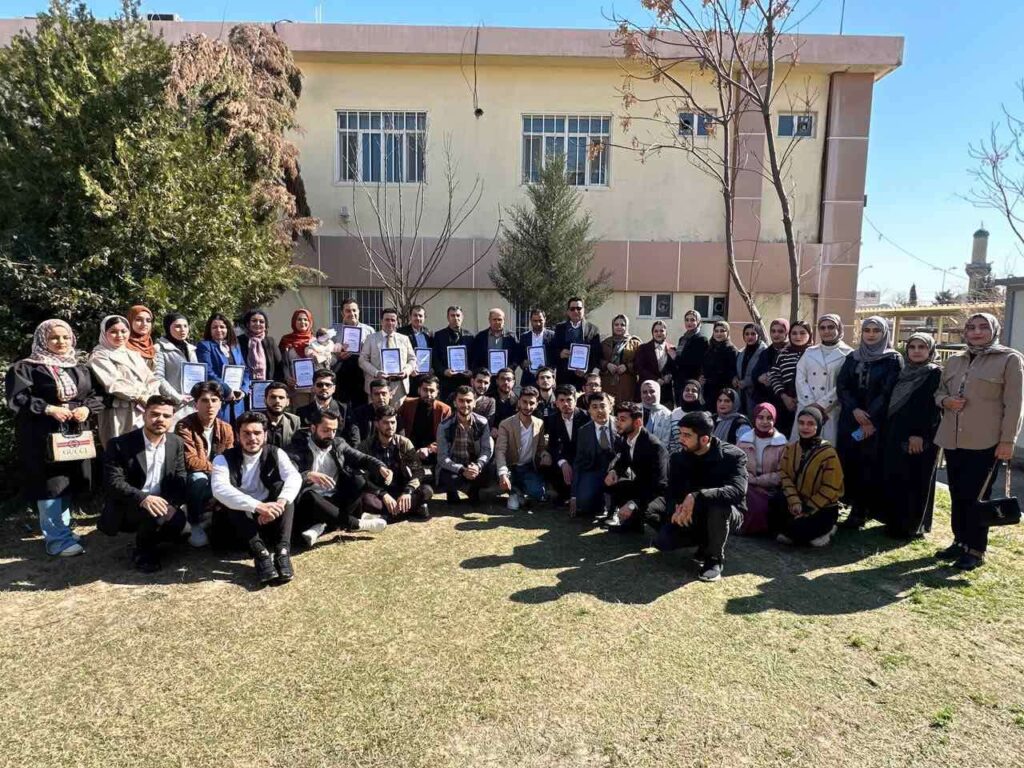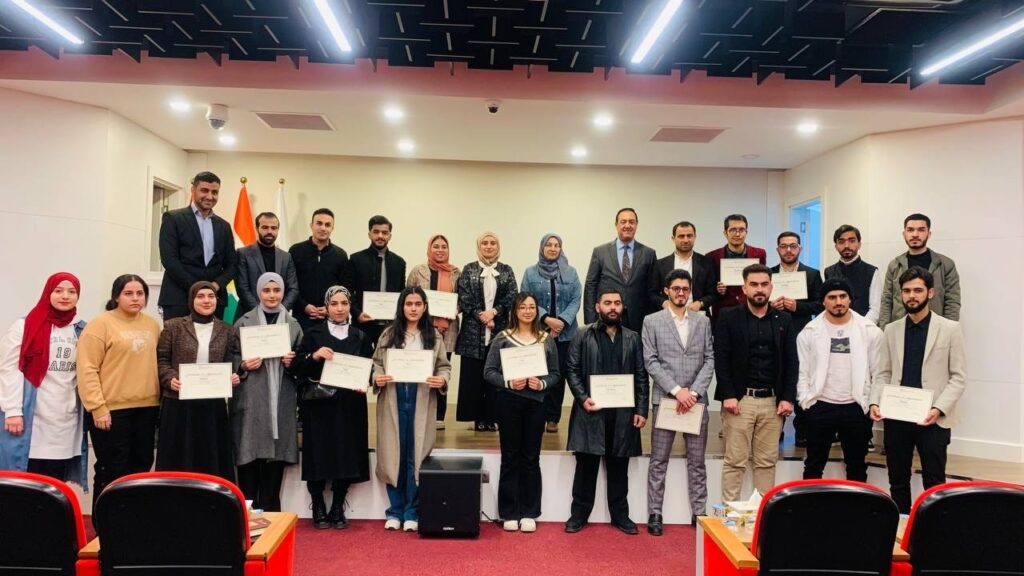- Weekly Presentation by Asst. Prof. Dr. Parween Shawkat Kawthar
A weekly presentation was given by (Asst. Prof. Dr. Parween Shawkat Kawthar) on Monday 5th of February, 2024 at English Department for the teaching staff on (EFL Students’ Awareness and Use of Metacognitive Strategies in Writing skill). The content of the presentation is given below with part of the theoretical background of the topic.
The content of the seminar:
- Introduction
- What is Metacognitive?
- What are its Components?
- Why Metacognitive strategies?
- What are Metacognitive Writing Strategies?
- Metacognitive in Holly Qur’an
Writing is a vital skill in the process of learning a foreign language. It requires learners to develop language proficiency that helps them express their thoughts, write essays, produce research papers, and obtain high scores in exams; in other words, to succeed in their academic life. However, possessing effective writing skills is fraught with difficulties since writing is a complex process that represents one of the most problematic areas for foreign language learners.
Researchers have identified a number of factors that hinder the improvement of EFL learners’ writing competence. These include the students’ limited knowledge of the topic, insufficient practice, and inadequate feedback and their negative attitudes and apprehension towards writing. However, one of the most effective factors impeding students’ writing performance is the absence of a purposeful and systematic use of the learning strategies in foreign language classes.
- Weekly Presentation by Dr. Arev Meerza Astifo
A weekly presentation of a published article was given by (Dr. Arev Merza Astifo) on Monday 12th of February, 2024 at English Department for the teaching staff on (A Study of the Cultural Intricacies that the Students Face during Language Learning Processes). This article was published in the Kurdish Academy Journal Number (56) of 2023. Below is the abstract of the paper.
Abstract
Learning strategies are selected based on insights and analysis that are based on a common global academic foundation. A set of complications negatively affect the process of receiving the applied English language and have many negative psychological and achievement effects on students, and therefore this study seeks to investigate the impact of common ideological and cultural complexities among students on learning applied English linguistics. A quantitative methodology was adopted, where a questionnaire has been distributed online among a sample of (300) teachers working in different English departments at Kurdistan/ Erbil Universities. SPSS 23 was used to evaluate the gathered replies, and the results revealed that numerous cultural complications influence students’ acquisition of applied linguistics, such as the traditions and customs of eastern civilizations, which do not favour language learning. Another cultural complexity is the shyness that affects the learner when he/she practices the language in front of others. Moreover, many other erroneous ideologies affect the learning of English applied linguistics including students’ contempt for modern teaching methods of the English language, and the false belief among students that learning English is not compatible with the culture and Islamic teachings of society. Moreover, the study concluded that there is a strong negative correlation with statistical significance between the ideological and cultural complexities of students and the learning of applied English linguistics in English departments at Kurdistan University, through the analysis of statistical data. It was also found that complexities are more influential in learning applied English than cultural complexities. The researcher recommends the necessity for teachers to deal with a greater degree of awareness with the current generations in dealing with these complexities, by making the English language away from the wrong ideology recognized before, and focusing on teaching it as an important and global foreign language, and that mastering it is important in achieving development.
Keywords: Cultural Intricacies, Learning English, linguistics.
- A workshop on (The Role of Technology and Its Impact on Learning/Teaching) at Kurdistan Teachers’ Union
Two of English Department teachers (Asst. Prof. Dr. Asma Abbass Brime and Asst. Prof. Zhin Hamad Amin Abdullah) along with two other English language teachers ran a workshop which was organized by Kurdistan Teachers’ Union on Monday 12th of February, 2024 on (The Role of Technology and Its Impact on Learning/Teaching).
- The Participation of English Department in the 4th Conference on Student Research Projects and Idea Grants at Salahaddin University-Erbil on 15th February 2024
On February 15th, 2024 two fourth stage students of English Department (Maryam Haji and Surat Fariq) participated in the 4th Conference on Student Research Projects and Idea Grants with a poster presentation of their graduation project titled (Challenges Pre-Service Teachers Trainees Face During Their Teaching Practicum) under the supervision of (Asst. Lecturer Muhammad Abdul-Wahab Aziz).
- Weekly Presentation by Asst. Prof. Dr. Muhammad Qadir Saeed
A weekly presentation was given by (Asst. Prof. Dr. Muhammad Qadir Saeed) on Monday 19th of February, 2024 at English Department for the teaching staff on “What’s the World’s Oldest Language?”. The focus was on the debate which rages over which languages can claim to have the earliest origin. Language comes in different forms—including speech, gestures and writing—which don’t all leave conclusive evidence behind. And experts use different approaches to determine a language’s age. Scientists are aware of more than 7,100 languages in use today. Nearly 40 percent of them are considered endangered, meaning they have a declining number of speakers and are at risk of dying out. Some languages are spoken by fewer than 1,000 people, while more than half of the world’s population uses one of just 23 tongues. These languages and dead ones that are no longer spoken weave together millennia of human interactions. That means the task of determining the world’s oldest language is more than a linguistic curiosity. For instance, in order to decipher clay tablet inscriptions or trace the evolution of living tongues, linguists must grapple with questions that extend beyond language. In doing so, their research reveals some of the secrets of ancient civilizations and even sparks debates that blend science and culture. The seminar comes to conclude that tracing the oldest language is “a deceptively complicated task”.
- Poem Recital at College of Basic Education
On February 19th, 2024 some English Department Third Stage students delivered a poetry recital and a seminar discussion at College of Basic Education. This activity was arranged by Dr. Bandar Abdul-Qahar Muhammad.
- Participation of a group of English Department Faculty Members at a national workshop at Tishk University
A group of English Department teachers participated in the national workshop at Tishk University on (Exploring the Intersection: AI Processes and Impact in Education) on Thursday, February 22, 2024.
- Poetry Recital Event at Knowledge University
A group of students, supervised by (Dr. Bandar Abdul-Qahar Muhammad) participated in a poetry Recital Event at Knowledge University on February 22nd, 2024. In the event, the students analyzed some poems and read some original poems written by the students themselves. The objective is to create a sense of autonomy for the students and explore other areas of English Language.
- Weekly Presentation by Asst. Prof. Zheen Hamad Amin Abdullah
A weekly presentation was given by (Asst. Prof. Zheen Hamad Amin Abdullah) on Monday 26th of February, 2024 at English Department for the teaching staff on FLIP (Feedback and Lecture Interaction Platform) approach in education. FLIP utilizes video technology to foster interaction and feedback within learning communities. The presentation highlights the significance of FLIP for enhanced engagement, personalized feedback, accessibility, inclusivity, community building, and flexible learning. The session also discusses challenges such as privacy concerns, technological access and literacy, potential for anxiety, time demands on educators, and technical issues. It concludes by emphasizing FLIP’s role in shifting towards more interactive, personalized, and flexible learning experiences through video technology.
- Appreciation Ceremony to the English Department Teachers
Fourth Stage students held an appreciation ceremony to the English Department teachers on Wednesday, February 28, 2024. Honour guests included all the teachers who have once taught this cohort of students. The ceremony started with a number of the fourth stage students extending their appreciation and gratitude for the education they have received from the department and the teachers. This was followed by awarding each teacher a certificate of appreciation by the students. Finally, the students served refreshment to the guests and the teachers.
- Participation of a group of English Department Faculty Members at a national workshop at Tishk University
A group of English Department teachers participated in a national workshop at Tishk University on (Learning Strategies Used by EFL Learners), run by Prof. Dr. Fatimah R. Hasan, on Wednesday, February 28, 2024.
